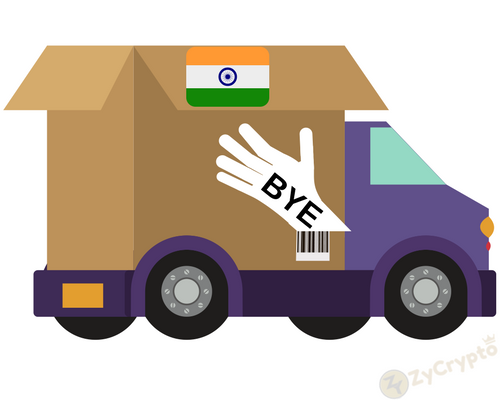The Indian Central Bank issued a directive with a deadline that, by July 6, financial institutions must shut down the bank accounts of companies that trade cryptocurrencies.
These financial institutions are also prohibited from providing loans or other financial services after the deadline. This seemingly marks the end of the line for the cryptocurrency industry in India.
However, the cryptocurrency exchanges are still staying strong.
According to a statement by Shubham Yadav, co-founder of Coindelta, a crypto exchange company,
“It won’t be possible for us to function in the current regulatory environment with existing business models. Therefore, several firms are looking at registering their head offices out of India.”
The exchanges are out to seek for new cryptocurrency-friendly locations which include Singapore, Switzerland, Malta, Japan, Estonia, Cayman Islands, and Dubai.
“This way, we won’t be an India-centric exchange but will become a global player,” the CEO of another cryptocurrency exchange said, withholding the company’s next move.
The exchanges are considering taking legal actions towards the Reserve Bank of India’s decree in the Supreme Court of India. Some of the exchanges are planning to join forces to approach the court for a favorable outcome. Legal practitioners think that the exchange companies can combat the RBI’s decision in many ways.
Crypto traders could still buy cryptocurrencies with rupees, but this will end with the July 6 deadline.
“The current remittance regulations will not allow customers to convert rupees into any other currency and make purchases from an international exchange. Therefore, the only option left will be a crypto-to-crypto trade for (the existing) investors that allows you to buy one cryptocurrency in exchange for the other,” explained Hesham Rehman, CEO of Bitxoxo, another crypto exchange. “The other option is buying by paying cash in another nation, which may not be feasible.”
The only available option left for new investors would be the peer-to-peer (p2p) transactions, a method few cryptocurrency exchanges may consider. If this system is adopted, the function of an exchange company will be just to connect buyers and sellers of cryptos, and then traders will continue the transaction offline without involving the exchange company.
Obviously, this system requires trust and would face some setbacks.
“Trust is an important concern here as these transactions take place between two individuals. It works on the guarantee that you will get the cryptocurrency after giving cash. So there are concerns about frauds or illegal transactions,” said Nischal Shetty, founder of WazirX, another cryptocurrency exchange.
To this end, it is clear that only the big cryptocurrency exchange firms in the country will survive this transition.
Anirudh Rastogi, a partner at a cryptocurrency exchange representing law firm, explained, “Shifting the operation to another country is an expensive as well as taxing proposition. Similarly, re-inventing the whole business model also won’t be easy. Therefore, only bigger firms with better financials will find it worthwhile to restructure their businesses and will survive.”






